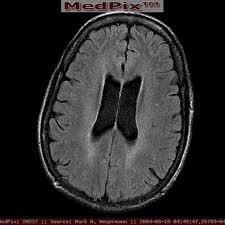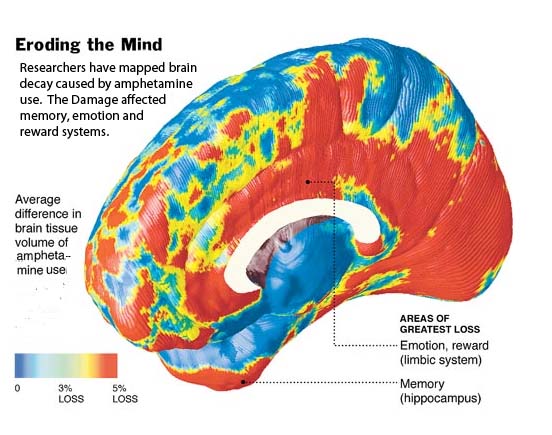
Phone: 508-717-4110 Email: neldc.org@gmail.com
Side Effects on Children Taking ADHD Drugs

X-ray of Brain Damage caused by Amphetamines.
|
|
|
|

Neuron damage
Shire Corporation has noted that there is significant evidence that amphetamines can cause damage to the brain's neurons - the cells which are used for thinking. Both Adderall and Adderall XR have been found to be neurotoxic in laboratory rats particulary in the higher does. No one as yet has done a study on the long term neurotoxic effects on children, according to the FDA. There is evidence that significant neurological changes and side effect can and do occur while taking Adderall or another stimulant medication that is chemically similiar or derived from amphetamines.
Ford JB, Albertson TE, Owen KP, Sutter ME, McKinney WB. Pediatr Neurol. 2012 Sep;47(3):216-8. doi: 10.1016/j.pediatrneurol.2012.05.013.
Shire Corporation, admits that it's block buster drugs, Adderall and Aderall XR. have the possibility of being neuro-toxic as evidenced when laborotory rats injest high amounts of it. It also has in some cases serious side effects. Letter to James Paicopolos from Shire Corporation
Amphetamine users have reduced concentrations of a chemical called N-acetyl-aspartate, which is a byproduct of the way neurons work.
Research carried out in Torrance, California, and reported in the journal "Neurology", compared the brains of 26 previous methamphetamine users with 24 non-users.
They found at least 5% lower concentrations of N-acetyl-aspartate in two key areas of the brain, the basal ganglia and frontal white matter.
Dr Thomas Ernst, who led the project, said: "Many brain diseases associated with brain cell or neuronal damage or loss, such as Alzheimer's disease and other dementia, epilepsy, multiple sclerosis, brain tumors, stroke and HIV brain diseases, consistently have shown decreased N-acetyl-aspartate.
"This, in the drug users' brains, suggests neuronal loss or damage as a result of long-term amphetamine use."
Amphetamines work by releasing large quantities of the brain stimulating chemical dopamine.
Animal studies have shown brain abnormalities persisting four years after amphetamine use stops.
Ritalin and other Amphetamines used for treatment of ADHD has continued to increase in the school population with apparently little or no real benefit in academic performance. China and Japan where ADHD medications are nonexistent in the school populations have continued to outpace American students who have the "advantage" of the ADHD medications.
Amphetamine users become dependent on the drug, and withdrawal symptoms cause actually cause hyperactivity and aggression. Regular use of ADHD drugs especially in the doses causes hallucinations, aggression, delusions and feelings of paranoia. [ Physicians Desk Reference]
Amphetamines and their salts such a Ritalin, Concerta and Addreall are neurotoxic especially in the higher doses, as a result brain damage can occur, number of brain cells and density of brain cells can be greatly reduced. This leads to irreversible cognitive impairment. Toxic-psychosis which resembles schizophrenia occurs. In addition amphetamines are cardiotoxic due to the damage they can do to the heart. Tachycardia which results from the amphetamine speeding up the heart rate is a direct cause of Microvascular Ischemic Disease of the brain in which tiny blood vessels in the brain break which prevents oxygen from getting to the vital parts of the brain.
In addition Amphetamine causes increases in heart rate and blood pressure, and can cause significant increases in cerebral blood flow with overall increases of around 30% and can be doubled in local regions of the brain, particularly the left frontal cortex. This activity can lead to haemorrhages and other forms of stroke such as microvasular ischemia. Karch et al, reviewing 413 methamphetamine-related deaths noted ten cases of subarachnoid and intracranial hemorrhage in the methamphetamine-related group and concluded: Methamphetamine use is strongly associated with coronary artery disease and with subarachnoid hemorrhage.
|
Learning Disabilities